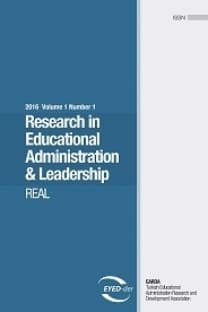When the demand for educational research meet practice
The objective in this article is to explore how this demand can emerge in an action research project as well as in school principals’ daily life. This is done in form of a case study were a group of principals enters a partnership with a researcher in their quest to apply a scientific approach in their own and, in their teachers’ professions. This study provide a pertinent example of how a this demand can emerge in practice. The theory of practice architectures (Kemmis & Grootenboer, 2008) is used as an analytical framing. The research questions are as follows: 1) How do the principals understand and realise the demand of an enhanced scientific foundation in their schools? 2) What happens when a group of principals and a researcher enters a partnership? 3) What practice architecture affect the partnership between the principals and the researcher? 4) What practice architecture affect the principals leadership actions in their schools?
Keywords:
Practice arhitectures, principal, demand, educational reserach action reserach,
___
- Anderson, G. L., & Herr, K. (1999). The new paradigm wars: Is there room for rigorous practitioner knowledge in schools and universities? Educational Researcher, 28 (5), 12-21
- Alvesson, M. (2013). Organisation och ledning: ett något skeptiskt perspektiv. [Organization and leadership: a rather sceptical perspective] Lund, Sweden: Studentlitteratur.
- Alvesson, M., & Spicer, A. (2012) Critical leadership studies: The case for critical performativity. Human relations, 65(3), 367-390
- Biesta, G. (2019). Reclaiming teaching for teachers education: Towards a spiral curriculum. Beijing international review of education (1), 259-272
- Bridges, D., & Jonathan, R. (2008). Education and the market. In N. Blake, P. Smeyers, R. Smith, & P. Standish (Eds.), The Blackwell guide to the philosophy of education (pp. 126–145). Oxford, UK: Blackwell Publishing.
- Carr, W., & Kemmis, S. (1986). Becoming critical: Education knowledge and action research. London, UK: Falmer Press.
- Carr, W. (2009). Practice without theory? A postmodern perspective on educational practice. In B. Green (red.), Understanding and researching professio0nal practice (pp. 55-64). Netherlands: Rotterdam: Sense Publisher
- Crossouard, B., & Pryor, J. (2012). How theory matters: Formative assessment theory and practices and their different relations to education. Studies in Philosophy and Education, 31(3), 251–263.
- Flygare, E., Frånberg, G.-M., Gill, P., Johansson, B., Lindberg, O., Osbeck, C., & Söderström, Å. (2011). Utvärdering av metoder mot mobbning. [Evaluation of methods against bullying] Stockholm, Sweden: Skolverket.
- Forssten Seiser, A., & Karlefjärd, A. (2014). Aktionsforskning som förhållningssätt i en föränderlig omvärld. KAPET, [Action research as an approach in a changing environment] 10, 58–73.
- Forssten Seiser, A. (2017). Stärkt pedagogiskt ledarskap. Rektorer granskar sin egen praktik. Doctoral thesis. Karlstad: Karlstads University
- Forssten Seiser, A. (2019). Exploring enhanced pedagogical leadership: an action research study involving Swedish principals. Educational Action Research. https://doi.org/10.1080/09650792.2019.165666
- Gunter, H., & Ribbins, P. (2003). Challenging orthodoxy in school leadership studies: Knowers, knowing and knowledge? School Leadership and Management, 23(2), 129–147.
- Habermas, J. (1972). Knowledge and human interests. Boston, MA: Beacon Press.
- Habermas, J. (1996). Between facts and norms: Contributions to a discourse theory of law and democracy. London, UK: Polity.
- Hirsh, Å., & Lindberg, V. (2015). Delrapport från SKOLFORS-projektet. Formativ bedöming på 2000-talet - en översikt av svensk och internationell forskning. [Interim report from the SKOLFORS project. Formative assessment in the 21 st century – an overview of Swedish and international research]. Stockholm, Sweden: Vetenskapsrådet
- Jankowski, N., & Provezis, S. (2012). Neoliberal ideologies, governmentality and the academy: An examination of accountability through assessment and transparency. Educational Philosophy and Theory, 46(5), 475–487.
- Kaukko, M., and Wilkinson, J., (2018). 'Learning how to go on': refugee students and informal learning practices. International Journal of Inclusive Education. https://doi.org/10.1080/13603116.2018.1514080
- Kemmis, S., & Grootenboer, P. (2008). Enabling praxis. Challenges for education. . I S. Kemmis & T. J. Smith (Red.), Situating Praxis in Practice. (ss. 37-62). Amsterdam: SENSE Pub.
- Kemmis, S., McTaggart, R., & Nixon, R. (2014a). The action research planner: Doing critical participatory action research: Singapore: Springer Singapore.
- Kemmis, S., Wilkinson, J., Edwards-Groves, C., Hardy, I., & Grootenboer (2014b). Changing practice, changing education. Singapore: Springer, Singapore
- Kvernbekk, T. (2013). Evidence-based practice: On the function of evidence in practical reasoning. Studier i pedagogisk filosofi, 2(2), 19–33.
- Levinsson, M. (2013). Evidens och existens. Evidensbaserad undervisning i ljuset av lärares erfarenheter.[Evidence and existence. Evidence-based teaching in the light of teachers’ experiences]. (Doctoral dissertation). Gothenburg, Sweden: The University of Gothenburg.
- Mahon, K., Kemmis, S., Fransisco, S., & Lloyd, A. (2017). Introduction: Practice theory and the theory of practice architectures. In K. Mahon, S. Fransisco, & S. Kemmis (Eds.), Exploring education and professional practice: Through the lens of practice architectures (pp. 1–30). Singapore, Singapore: SAGE.
- Novak, J. (2019). Juridification of educational spheres: The case of Sweden. Educational Philosophy and Theory. https://doi.org/10.1080/00131857.2017.1401464
- Reason, P., & Bradbury, H. (2001). Handbook of action research: Participative inquiry and practice. London, UK: SAGE. SFS 2010:800. Skollag [Education Act of 2010.] Retrieved from http://www.riksdagen.se/sv/dokument-lagar/dokument/svensk-forfattningssamling/skollag-2010800_sfs-2010-800
- Yin, R. K. (2013). Kvalitativ forskning från start till mål. Lund: Studentlitteratur.
- Yayın Aralığı: Yılda 4 Sayı
- Yayıncı: Dokuz Eylül Üniversitesi
